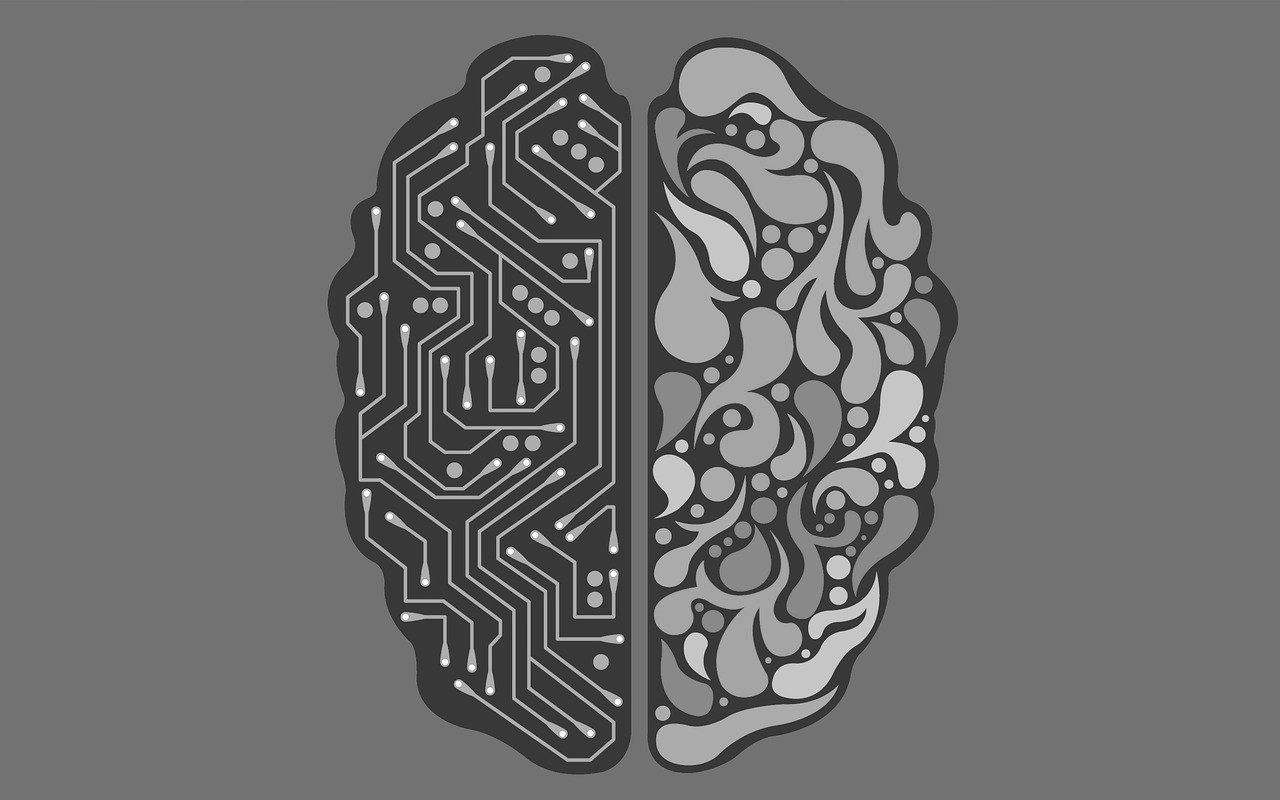When Will Artificial Intelligence Surpass Human Intelligence

August 7, 2023
The concept of artificial intelligence (AI) has been a subject of fascination for humanity for decades, often depicted in science fiction as a powerful force that could reshape the world. Today, AI is no longer a dream belonging to the realms of imagination but is actively transforming various industries and aspects of our daily lives.
But, as AI continues to advance at an exponential rate, a crucial question looms: when will AI surpass human intelligence? This moment, known as the “technological singularity,” represents a time when AI could potentially outperform human cognitive abilities. In this article, we will explore the current state of AI, the challenges it faces, and the diverse perspectives on when this momentous event might take place.
Mastering AI: A Beginner’s Guide to Understanding and Utilizing Artificial Intelligence
The Current State of Artificial Intelligence
Artificial Intelligence (AI) is a rapidly advancing technology that has already made significant inroads into various aspects of society. It is the ability of a machine to display human-like capabilities such as reasoning, learning, planning, and creativity. AI enables technical systems to perceive their environment, deal with what they perceive, solve problems, and act to achieve a specific goal. It is seen as central to the digital transformation of society and has become an EU priority.
AI has already made a positive impact across a broad range of industries. It can automate processes to free employees of unnecessary labor, provide personalized learning options for students, enable cybersecurity companies to deploy faster solutions, and help fashion companies design better-fitting clothing for their customers.
A Few Examples
Maps and Navigation: AI has drastically improved traveling. Applications like Google Maps use machine learning to remember the edges of buildings, recognize and understand house and building numbers, and identify changes in traffic flow to recommend optimal routes.
Facial Detection and Recognition: AI appears in facial detection and recognition technologies, which are now part of our daily lives. These technologies are used in virtual filters for taking pictures, face ID for unlocking phones, and for surveillance and security in government facilities and airports.
Text Editors or Autocorrect: AI algorithms use machine learning, deep learning, and natural language processing to identify incorrect usage of language and suggest corrections in word processors, texting apps, and other written mediums.
Search and Recommendation Algorithms: AI appears in smart recommendation systems that learn your behavior and interests over time by following your online activity. These systems can predict your preferences and offer recommendations for things you might want to buy or listen to next.
Chatbots: AI chatbots are used to answer frequently asked questions, take and track orders, and direct calls. They are taught to impersonate the conversational styles of customer representatives through natural language processing (NLP).
Digital Assistants: AI is the backbone of digital assistants like Siri and Alexa, which use NLP, machine learning, statistical analysis, and algorithmic execution to decide what you are asking for and try to get it for you.
Social Media: AI algorithms appear in social media applications to monitor content, suggest connections, serve advertisements to targeted users, and ensure that you stay invested and “plugged in”.
E-Payments: AI is playing a part in the banking sector by making transactions more efficient and less time-consuming.
The Challenges Ahead
The question of when AI will surpass human intelligence is a topic of ongoing debate among experts. The concept of AI reaching and surpassing human intelligence is often referred to as Artificial General Intelligence (AGI). AGI is the point at which AI acquires human-like generalized cognitive capabilities, meaning it can tackle any intellectual task a human can. However, AGI is not here yet; a lack of certain human traits such as true creativity and emotional awareness hold current AI models back.
In a paper published last year, titled, “When Will AI Exceed Human Performance? Evidence from AI Experts,” elite researchers in artificial intelligence predicted that “human-level machine intelligence,” or HLMI, has a 50 percent chance of occurring within 45 years and a 10 percent chance of occurring within 9 years. However, some might argue that HLMI is already here, given the capabilities of virtual assistants like Siri or Cortana.
What we must keep in mind is that AI has already surpassed humans in some domains. They can beat us at many strategy games like chess, the board game Go, and some Atari video games. Machines can even perform surgery, fly airplanes, and drive cars and trucks.
And yet, despite these advancements, there are still areas where AI falls short of human capabilities. For instance, the best algorithms today need the exposition to thousands of data sets in order to learn the difference between, say, an apple and an orange. Children, however, can tell the difference after only a few introductions. This rapid learning ability is something researchers are trying to understand and apply to machines.
What About Emotions?
Another aspect to consider is the incorporation of emotion. While a machine might be able to “outsmart” a human in a game of chess, it lacks the emotional intelligence to show good sportsmanship or empathize with a human’s feelings. As one researcher notes, “Human empathy and kindness are an important part of intelligence. In this domain, I doubt AI will ever outsmart us“.
In terms of creativity, machines are able to paint in the style of Van Gogh and Picasso, but teaching a machine to mimic creativity is not the same as true creativity. Will a machine ever write the next Tony Award-winning play? Or break into an impromptu dance in the rain when an unexpected shower strikes? These are questions that remain to be answered.
In conclusion, while AI has made significant strides and in some areas has already surpassed human capabilities, there are still aspects of human intelligence – such as creativity, emotional intelligence, and rapid learning – that AI has yet to master. The timeline for when AI might reach or surpass human intelligence is uncertain, with estimates ranging from 9 to 45 years.
Artificial Intelligence: What Are the Cons?
The Perspectives on AI Surpassing Human Intelligence
The concept of the singularity, a point in time when artificial intelligence (AI) surpasses human intelligence and becomes self-improving, has generated a wide range of views. We can broadly categorize these perspectives into three groups: cautious, skeptical, and optimistic.
Cautious Views
Cautious views on the singularity emphasize the potential risks and challenges associated with AI surpassing human intelligence. These concerns often revolve around the loss of human control over technology and the potential for AI to become a threat to humanity. For instance, the theory of technological singularity predicts a point in time when humans lose control over their technological inventions due to the rise of machine consciousness and their superior intelligence.
Existing concerns are also about the social cost of AI due to the displacement of humans as a factor of production, and the human rights gaps that these uncontrolled changes may create. The cautious view argues for the need for international political action, including the creation of an international organism of technological oversight and an international treaty in artificial intelligence setting forth basic ethical principles.
Skeptical Views
Skeptical views question the feasibility of the singularity and often downplay its potential impact. Skeptics argue that the sole design of AI is to serve humanity and make humans more productive. They view the singularity not as a specific moment in time but as a process that, in many areas, has already started. Skeptics also point out that developing gradual independence of machines while fostering human dependence through their daily use will, in fact, produce the opposite result: more intelligent machines and less intelligent humans.
Optimistic Views
Optimistic views see the singularity as a significant opportunity for advancement and progress. Optimists believe that AI, once it surpasses human intelligence, will be able to solve complex problems and make significant contributions to various fields, including science, medicine, and technology. They argue that AI will not only be able to do what humans do but also do it better and without human supervision.
Despite these differing views, it’s important to note that the timeline and the exact nature of the singularity remain uncertain. The development of AI is a complex process into which many factors come into play, including technological advancements, regulatory frameworks, and societal attitudes towards AI.
Why Artificial Intelligence Is Dangerous
Conclusion
The question of when artificial intelligence will surpass human intelligence remains an enigma, eliciting fervent speculation and debate across the AI community and the general public. While AI’s advancements are undoubtedly reshaping our world, reaching human-level intelligence will require overcoming formidable challenges related to computational power, contextual understanding, emotional intelligence, and the intricacies of human consciousness.
As we forge ahead in the quest for AI development, it is imperative to emphasize not merely achieving human-level performance, but also prioritizing responsible and ethical AI. Striking a balance between technological advancement and societal well-being will be crucial to ensure that AI integration benefits humanity, augmenting our capabilities rather than replacing our uniqueness.
Amidst the pursuit of AI’s potential, we must remember that the ultimate goal is not just the advancement of machines. It’s the enhancement of human life and the creation of a future where AI and human intelligence coexist harmoniously, with shared values and a vision for a better world.








